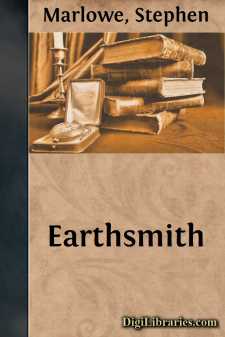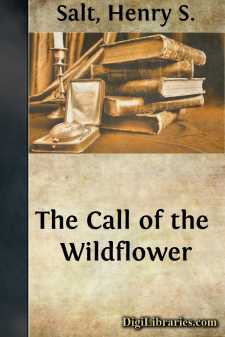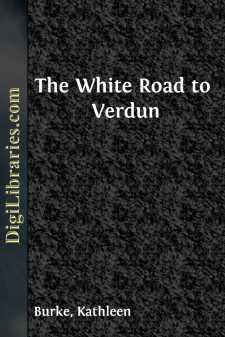Fiction
- Action & Adventure 182
- Biographical 15
- Christian 59
- Classics 6965
- Coming of Age 4
- Contemporary Women 1
- Erotica 8
- Espionage/Intrigue 12
- Fairy Tales, Folklore & Mythology 235
- Family Life 169
- Fantasy 117
- Gay 1
- General 596
- Ghost 32
- Historical 808
- Horror 42
- Humorous 159
- Jewish 25
- Legal 4
- Medical 22
- Mystery & Detective 314
- Political 49
- Psychological 41
- Religious 64
- Romance 157
- Sagas 11
- Science Fiction 730
- Sea Stories 113
- Short Stories (single author) 537
- Sports 10
- Suspense 1
- Technological 8
- Thrillers 2
- Urban Life 29
- Visionary & Metaphysical 1
- War & Military 173
- Westerns 199
Fiction Books
Sort by:
Chapter 1 A Little Village Called Montignies St. Christophe We passed through it late in the afternoon—this little Belgian town called Montignies St. Christophe—just twenty-four hours behind a dust- colored German column. I am going to try now to tell how it looked to us. I am inclined to think I passed this way a year before, or a little less, though I cannot be quite certain as to that. Traveling...
more...
by:
Sewell Ford
CHAPTER I THE UP CALL FOR TORCHY Well, it's come! Uh-huh! And sudden, too, like I knew it would, if it came at all. No climbin' the ladder for me, not while they run express elevators. And, believe me, when the gate opened, I was right there with my foot out. It was like this: One mornin' I'm in my old place behind the brass rail, at the jump-end of the buzzer. I'm...
more...
CHAPTER I Sitting down on the edge of the bed, Dolly looked around forlornly enough. Of course, she wanted to go to college, but for the first time she realized how dreadful it was, to be away from all the home-folks. In all those great buildings, with their hundreds of students, there was not a soul that Dolly knew. Outside the door she could hear the old girls talking and chattering together. But she...
more...
by:
Stephen Marlowe
Someone in the crowd tittered when the big ungainly creature reached the head of the line. "Name?" The creature swayed back and forth foolishly, supporting the bulk of his weight first on one extremity and then on the other. His face which had a slight rosy tint anyway got redder. "Come, come. Planet? Name?" The registrar was only a machine, but the registrar could assume an air of...
more...
by:
Henry S. Salt
THE CALL OF THE WILDFLOWER Tantus amor florum.Virgil. The "call of the wild," where the love of flowers is concerned, has an attraction which is not the less powerful because it is difficult to explain. The charm of the garden may be strong, but it is not so strong as that which draws us to seek for wildflowers in their native haunts, whether of shore or water-meadow, field or wood, moorland or...
more...
by:
Kathleen Burke
We left Paris determined to undertake the journey to the Front in the true spirit of the French Poilu, and, no matter what happened, "de ne pas s'en faire." This famous "motto" of the French Army is probably derived from one of two slang sentences, de ne pas se faire des cheveux ("to keep one's hair on,") or de ne pas se faire de la bile, or, in other words, not to...
more...
by:
Gilbert Parker
INTRODUCTION This book is a protest and a deliverance. For seven years I had written continuously of Canada, though some short stories of South Sea life, and the novel Mrs. Falchion, had, during that time, issued from my pen. It looked as though I should be writing of the Far North all my life. Editors had begun to take that view; but from the start it had never been my view. Even when writing Pierre...
more...
by:
Myers Gustavus
PREFACE In writing this work my aim has been to give the exact facts as far as the available material allows. Necessarily it is impossible, from the very nature of the case, to obtain all the facts. It is obvious that in both past and present times the chief beneficiaries of our social and industrial system have found it to their interest to represent their accumulations as the rewards of industry and...
more...
by:
Ouida
Nello and Patrasche were left all alone in the world. They were friends in a friendship closer than brotherhood. Nello was a little Ardennois—Patrasche was a big Fleming. They were both of the same age by length of years, yet one was still young, and the other was already old. They had dwelt together almost all their days: both were orphaned and destitute, and owed their lives to the same hand. It...
more...
by:
Various
CHAPTER I. They say that a union of opposites makes the happiest marriage, and perhaps it is on the same principle that men who chum are always so oddly assorted. You shall find a man of letters sharing diggings with an auctioneer, and a medical student pigging with a stockbroker's clerk. Perhaps each thus escapes the temptation to talk "shop" in his hours of leisure, while he supplements...
more...











